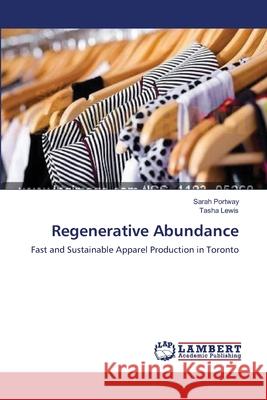Regenerative Abundance » książka
Regenerative Abundance
ISBN-13: 9783659223266 / Angielski / Miękka / 2012 / 108 str.
Apparel prices have steadily declined in Canada since the turn of the millennium and shoppers have grown accustomed to the influx of inexpensive imports. Local designers, currently struggling to compete, can cater to new demands by rapidly changing product assortments and striving for low prices to regain their dwindling customer base by observing a fast fashion supply chain model. Fast fashion manufacturing is an agile and trend-responsive production paradigm which delivers new designs from sketchbooks to retail outlets in just one month. This exploratory, qualitative analysis was intended to examine best-practices for Toronto apparel manufacturers by creating a fast and sustainable production model based on three intersecting pillars, designing for sustainability as defined by McDonough and Braungarts (2002) Cradle to Cradle 5 steps of eco-effectiveness, fast-fashion supply chain management practices as they are modeled by Zara, and local manufacturing conditions in Toronto. Using a semi-structured interview and online short answer questionnaires, participants from Toronto apparel production were asked what they felt would harmonize these competing objectives.











